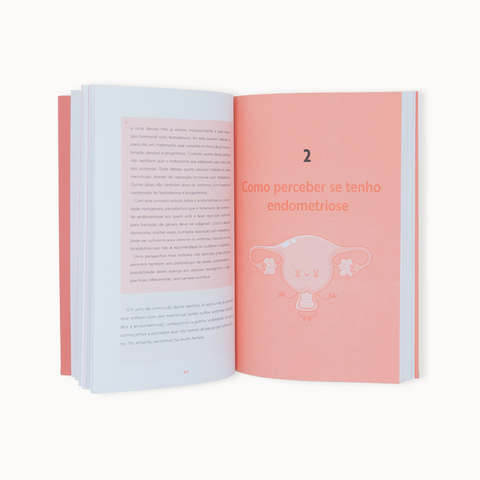Menstrual cycles can vary between 28 and 34 days. During this cycle, the foods and drinks we consume, as well as our lifestyle, are indicators of how menstruation and Premenstrual Syndrome (PMS) will treat us.
Understanding our menstrual cycle can really be a key insight into how we can start making simple changes that lead to a happier, healthier period.
In the view of Julie Von, an American doctor specializing in fertility, this cycle is an example of the complexity and beauty of the female body. When clearly defined, it provides a functional and understandable language for diagnosing possible hormonal imbalances.
A holistic way of looking at the menstrual cycle
I'm sure you've heard that women, like nature, are cyclical. This could mean that each phase of our cycle has a specific and direct influence on the way we feel, how we think and how we act.
Our perceptions are influenced by our relationship with Nature. There are many principles based on celestial and terrestrial influences that describe the connection between a human being's bodily processes and a greater universal process by which all energetic movements are managed (example: the lunar cycle can influence the menstrual cycle).
From the point of view of oriental medicine, there is a relationship between the influence of the Moon and a woman's menstrual cycle. On her website , Julie Von explains that the Moon influences the way energy flows throughout our body, being able to control our fertility patterns, affecting the psychological and emotional body.
The Moon and the menstrual cycle
The Moon is connected with what we are nourishing or healing, according to the specific energy of each phase. There are theories that argue that menstruating during the Waning Moon, for example, can indicate that some aspect of our childhood or our inner child is being purified and that, on the other hand, menstruating during the New Moon can symbolize a healing of subconscious aspects. However, there is no conclusive scientific evidence to confirm these possibilities. The best way to know what each of the Moon's phases means is to observe yourself, as well as be aware of any external manifestations that may arise.
Miranda Gray, a British spiritual advisor, considers it important for all women to know what phase of their menstrual cycle they are in at the moment, asking themselves questions and trying to understand how this may be having some type of interference in what they feel in the time. The objective is to become aware of the changes in mood that occur throughout the month, in order to understand our true needs.
Act according to the phases
It is important to observe ourselves more closely and know how to recognize our weaknesses and potentials as we look at the cycles of our uterus. Through this act of self-love, we can use our energy more wisely and efficiently:
- In the pre-ovulatory phase, start your projects, as this is when your energy is most focused;
- In the ovulatory phase, be present for others, as your state of mind will be more conducive to expressing emotions;
- In the premenstrual phase, finish your projects (this is the end of a cycle);
- Finally, during your period, take the opportunity to rest, meditate and relax.
Free yourself and make peace with your cycle.
Whenever we menstruate and have contact with our menstrual blood, we are given the opportunity to foster our relationship with ourselves, strengthening it. It is an opportunity to observe ourselves and increase our self-knowledge.
By truly understanding the female cycle, you will understand your emotions and recognize countless facets and personalities within yourself. This understanding and acceptance will allow the body to reflect this change: easing cramps, reducing the symptoms of Premenstrual Tension (PMS) and bringing you greater inner peace.
The body speaks to you. Read the signs.
Do you usually feel slight discomfort or pain in the region of one of your ovaries during ovulation? These symptoms can occur in cycles in which we are more rational. Since the ovaries are related to our creative processes and realization of our gifts, they need to flow freely. However, what happens at this stage is that one of the ovaries is struggling to ovulate and, because this is a stage in which we should express our essence and power to create, these organs end up resenting and capturing our attention through of discomfort.
Kareemi, Brazilian motivational speaker, creator of the concept “emotional gynecology”, explains that the uterus talks to us all the time and that, at each phase of the cycle, the ovaries give us signs that we need to slow down, breathe and meditate more: " When these signals arrive, we must respect our rhythm, as the body is giving warnings", he explains.
The female health facilitator explains that our cyclical self-knowledge allows us to have ownership over our body and makes all the difference when discussing with the gynecologist the most appropriate path to healing, including treatment appropriate to the emotional root of the problem. "Our ovaries flow and are grateful when we live fully, in creative development and in harmony with our feminine essence and cyclical nature. They help us understand when we are trying to do everything, but, at the same time, overloading the body and the mind", he concludes.
Sources: Julie Von and DanzaMedicina



















